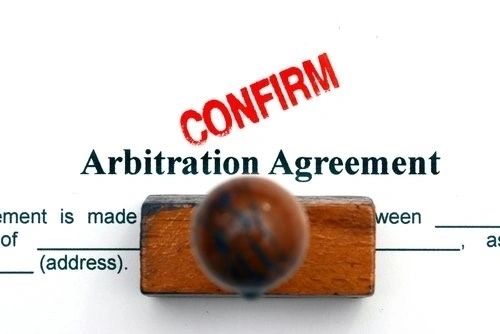California Employers: Can They Enforce Arbitration Agreements?
October 3, 2018, | Employment
As a California Employer, is your arbitration agreement regarding employment disputes lawful and enforceable? Maybe. If an employee claims a wage and hour claim and disputes overtime, missed break times, failure to itemize the pay stubs, then said issues cannot be arbitrated. The California courts deny arbitration of a PAGA claim involving issues of whether or not the employee was entitled to overtime, was misclassified, and entitled to breaks. Tanguilig v. Bloomingdale’s (2016) 5 Cal.App.5th 665, and Hernandez v. Ross Store (2016) 7 Cal.App.5th 171, the Court of Appeal expanded the scope of Iskanian v. CLS Transportation Los Angeles, LLC (2014) 59 Cal.4th 348 (“Iskanian”). The reason is that wage and hour claims are really a claim on behalf of the state of California under PAGA, where the state can take over the individual claim and sue the employer.
The federal courts, on the other hand, will enforce arbitration in most instances. Furthermore, the California courts will generally enforce arbitration agreements involving disputes related to discrimination, harassment, and/or retaliation under the Fair Employment and Housing Act (FEHA) where certain requirements are met.
Instead of long expensive lawsuits in court, an employer and employee may agree to arbitrate their employment related disputes, except for California Labor Code claims. Absent such a claim, many employers and employees agree to arbitrate their employment related disputes because arbitrations decrease the time and expense of a court trial. However, certain requirements must be met for the agreement to be fair for both parties.
In Armendariz v. Foundation Health Psychcare Services, Inc. (2000 W.L. 1201652 (August 24, 2000)), the California Supreme Court laid out the factors that an arbitration agreement must have to be lawful. The requirements imposed by in Armendariz for employment disputes are as follows:
n The agreement may not limit damages recoverable under statutes, including the California Fair Employment Housing Act (FEHA). Said act governs discrimination, harassment, retaliatory and/or other similar employment issues in employment. For example, an agreement to arbitrate may not require the employee to waive the right to recover front pay, emotional distress or punitive damages for discrimination or harassment.
n The arbitration agreement cannot require the employee to pay any expenses that the employee would not be required to pay if the employee had brought the action in civil court. Examples of such would be the arbitrator’s fees, room rental or administrative fees.
n The agreement must permit “adequate” discovery necessary to pursue a claim. The adequacy of discovery is determined by the arbitrator subject to limited judicial review.
n The arbitration agreement cannot require only the employee to pursue arbitration while leaving the employer free to pursue any claims against the employee in court.
n Finally, the arbitrator must issue a written decision where a statutory claim is involved in order to permit legal review by a court if the award is challenged as unenforceable.
In 2015, the California Supreme Court in Richey v. Autonation Inc., 60 Cal.4th 909 (2015), held that a court may not review an arbitrator’s decisions absent limited circumstances. An arbitrator cannot deprive an employee of its non-waivable statutory rights.

The California Supreme Court, however, noted that such was not the issue in the case before it. The Court found that the arbitrator did not interpret the federal and California family leave laws, a statutory right for employees. Instead, the arbitrator found that the employee violated the company’s policy against employees working for another company while being employed with it and on family leave.
In that case, as a condition of his hiring, plaintiff signed an agreement requiring that any employment dispute be resolved by arbitration. The plaintiff received an employment manual noting that outside work while on approved family leave was prohibited. During employment, the plaintiff began working on plans to open a local seafood restaurant. He bought equipment and leased a site for the restaurant, which opened. The company noticed that his work performance was off as he was distracted.
The plaintiff marketed his restaurant with sample menus and business cards while still working full time for his employer. Then, the employee injured his back while moving furniture at his home. The plaintiff’s physician informed his employer that he was medically unable to work. The plaintiff filed for medical leave of absence under the California Family Rights Act and the federal Family Medical Leave Act. The employer granted it extended it on multiple occasions.
Later, the employer learned that the employee was working at his new restaurant while on medical leave. The employer terminated him. The employee sued claiming he was fired for discrimination, and argued that the company’s policy did not apply to him because he was working for himself, not another company.
The matter went to arbitration. The arbitrator decided the case in favor of the employer. The employee appealed the arbitrator’s decisions stating that arbitrator’s decision committed legal error. Eventually the issue went all the way to the California Supreme court. The highest Court upheld the employer’s arbitration agreement. It ruled that California law favors alternative dispute resolution as a viable means of resolving legal conflicts. “Because the decision to arbitrate grievances evinces the parties’ intent to bypass the judicial system and thus avoid potential delays at the trial and appellate levels, arbitral finality is a core component of the parties’ agreement to submit to arbitration.” (Citing Moncharsh v. Heily & Blase (1992) 3 Cal.4th 1, 10 (Moncharsh).)
The California Supreme court explained that arbitration decisions are rarely reviewed by the courts unless the decision was (1) procured by corruption, fraud, or undue means; (2) issued by a corrupt arbitrator; (3) affected by prejudicial misconduct on the part of the arbitrator; or (4) in excess of the arbitrator’s powers. (Code Civ. Proc., § 1286.2, subd. (a); 9 U.S.C. § 10(a).) The Supreme Court found that none of those exceptions applied. As long as the arbitrator allowed the employee to raise his allegations under his statutory rights, and the arbitrator did not commit legal error in denying the employee’s statutory rights, then the arbitration decisions was lawful. However, in the case before it, the California Supreme Court held that the arbitrator did not interpret the federal or California leave statutes. Rather, it interpreted the employee’s duty to not work for another company while on a family leave. The employee disregarded that rule. The arbitrator found that the employer therefore lawfully terminated the employee.
The point of the 2015 Richey case is that the highest court supported the employer and the employee’s agreement to submit employment related claims to arbitration and such was. The arbitration agreement met the requirements needed to ensure a fair arbitration.

Share this post:
Employers must update and ensure that their arbitration agreements are fair and enforceable. They must exclude California Labor Code claims but may include the Federal FLSA. Other arbitration decisions rendered old arbitration agreements unenforceable. Contact Catherine M. Corfee for a brief review of your arbitration policy and to potentially update it: (916) 487-5441; catherine@corfeestone.com
Share this post:
